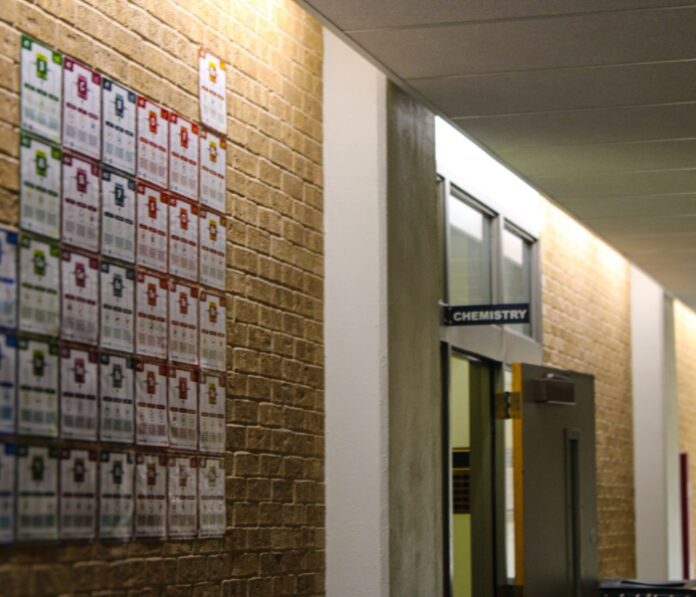Recently, the University of Dallas was awarded a $200,000 grant from the National Science Foundation (NSF) to fund research in the chemistry department. The application for the grant was written by Dr. Jonathan Dannatt, assistant professor in the chemistry department. The award was made possible in part through UD’s recent designation as a Hispanic Serving Institution.
“We’re a Hispanic Serving Institution, and as such, we can apply for this grant,” said Dannatt. “And the major purpose of this grant is to help universities purchase equipment to build better lab spaces for all their students.”
The grant money will be used to buy new equipment such as NMR (nuclear magnetic resonance instrumentation), IR (infrared instrumentation), and auto samplers for the NMRs.
One of the reasons Dannatt felt a need to apply for this grant was to generate student interest in labs and to assist in conducting chemical research.
According to Dannatt, science labs are typically conducted using experiments that already have set results; the professor already knows the answer to the experiment. For this reason, students often feel disinterested in the lab.
“When students don’t care, they learn less,” said Dannatt. “If they don’t care, they don’t invest intellectually.”
To circumvent this problem, a couple years ago, Dannatt tried teaching labs in which there was no predetermined answer – in other words, allowing students to practice chemical research.
“The standard lab practice, I usually refer to as a cookbook model – I give you instructions. You follow the instructions,” said Dannatt. “Rather than having them answer questions I already know the answer to, I wanted them to explore the unknown and answer research questions.”
Dannatt soon found that research doesn’t always fit in a perfect 4-hour block. Many experiments required checking in at 24-hour intervals, conflicting with many students’ schedules. Moreover, with limited equipment, many students were unable to conduct their experiment within their lab slot. A solution to these problems would be more efficient instrumentation, which led Dannatt to apply for the grant.
“It’s going to enable us to follow this research-based model,” said Dannatt. “When [students] do that research-based model, they come to lab and they care, because I’m telling them no one knows this answer. And when you find it, this is bringing value to not just you, but also the entire scientific community. You’re doing something of significant value with your time. So then they care about their labs; thus they learn more.”
Dannatt is hopeful that with the assistance of new instrumentation, UD students will be better equipped for their post-collegiate careers.
“At this university, we place a strong emphasis on human formation,” said Dannatt. “That includes both the metaphysical—shaping the soul—and the practical, like developing concrete skills. In the sciences, there’s a real focus on whether students graduate with the skills they need. If you’re applying for a job, employers want to see that you can operate an NMR, interpret the data, and understand its meaning. But if we don’t have the right instruments, students won’t develop those skills. In our field, these are standard, essential competencies—if you earn a chemistry degree, you should absolutely know how to do this. It’s fundamental to maintaining a high-quality program.”
Dannatt also stresses that the receiving of this grant came about in no small way from the assistance of fellow faculty and administration.
“The University of Dallas recruits really phenomenal science faculty,” said Dannatt. “I couldn’t have got this without support from the entire science faculty at the university. Furthermore, I couldn’t have done it without support from the administration. They did the work to get us HSI designation. Without that designation, I can’t even apply for this grant. So it’s a team effort to make this progress.”
